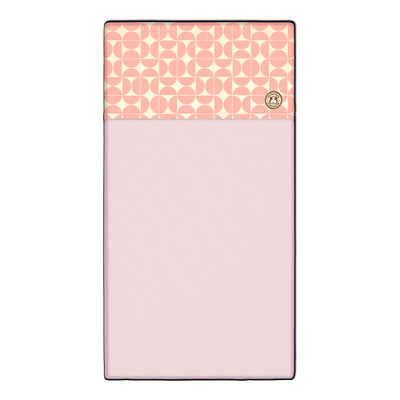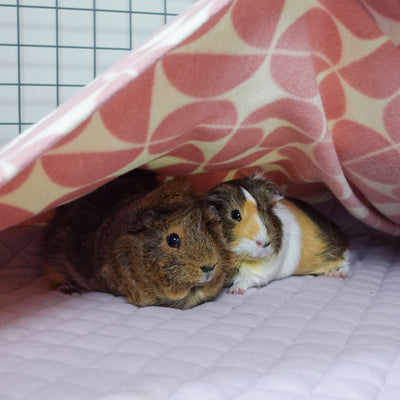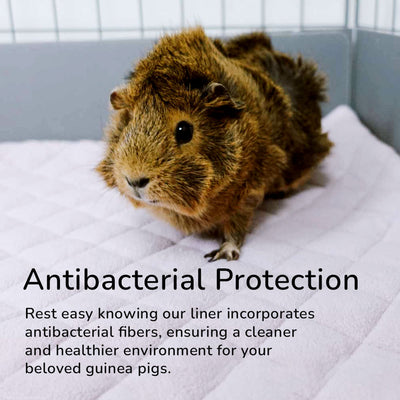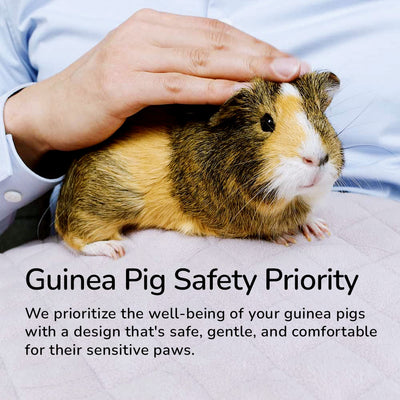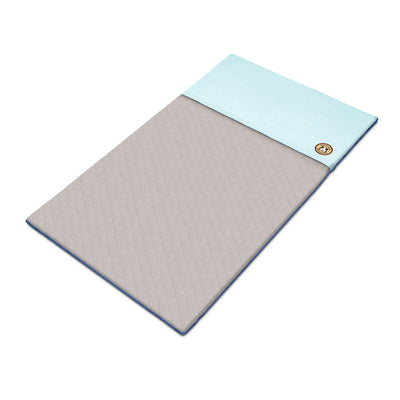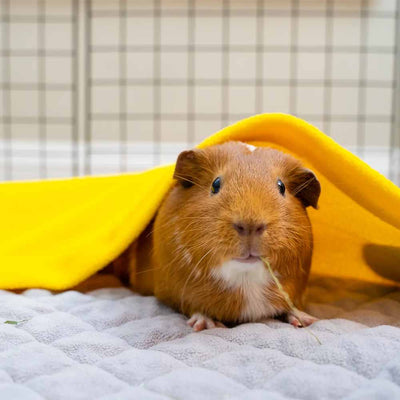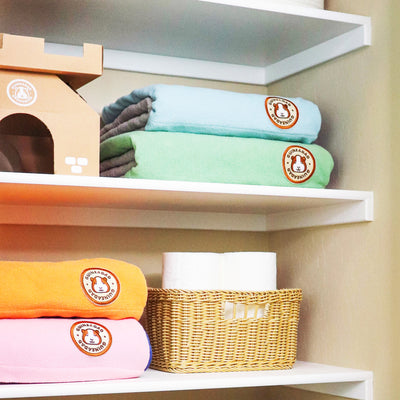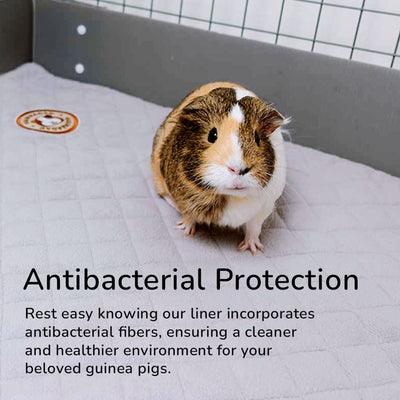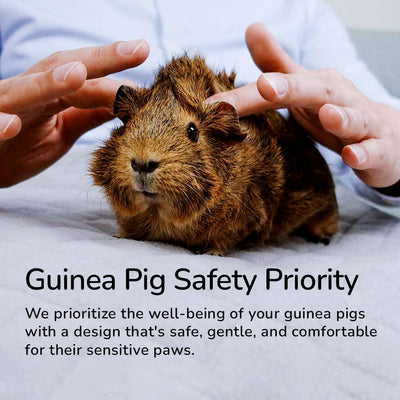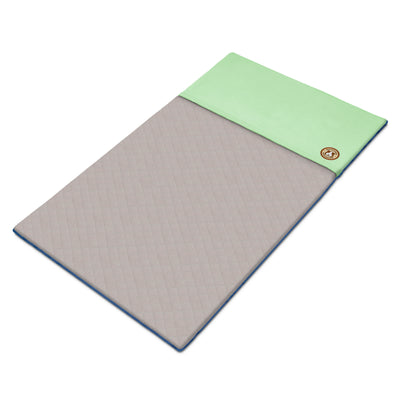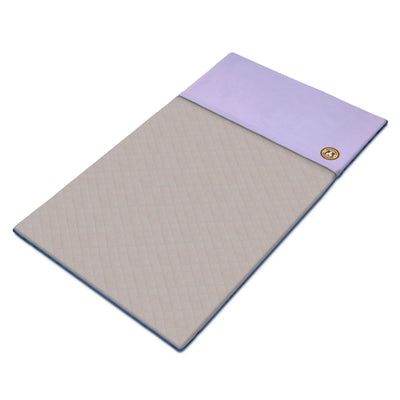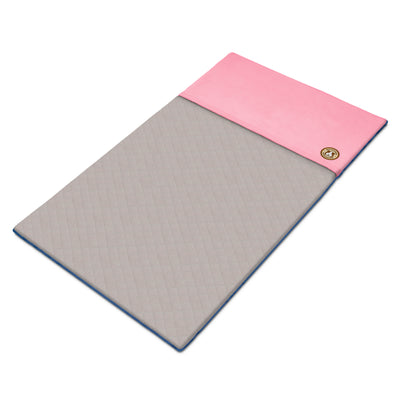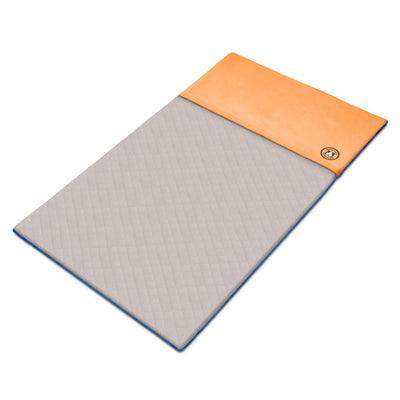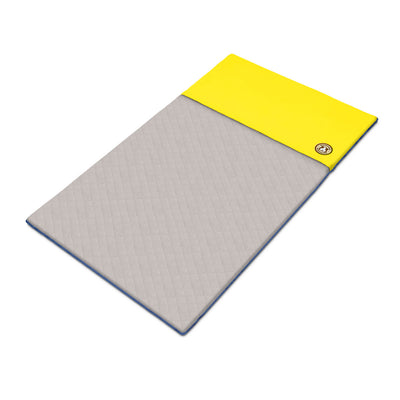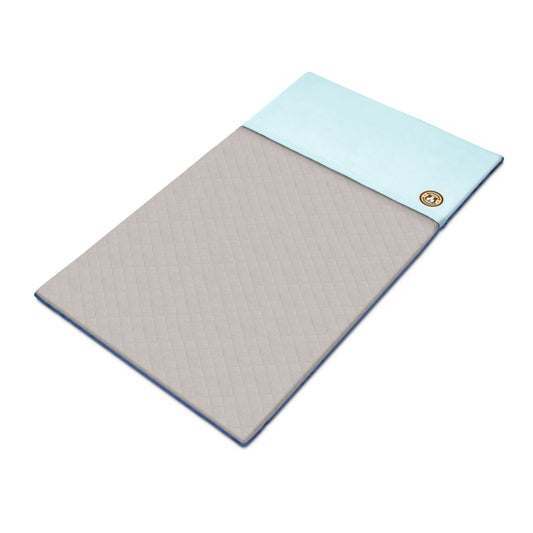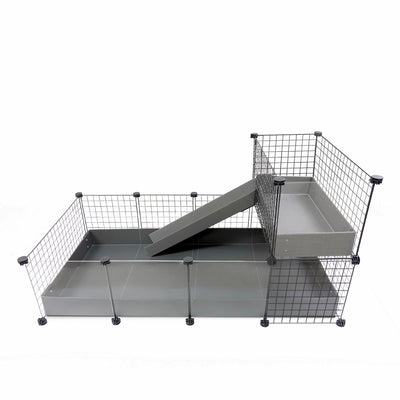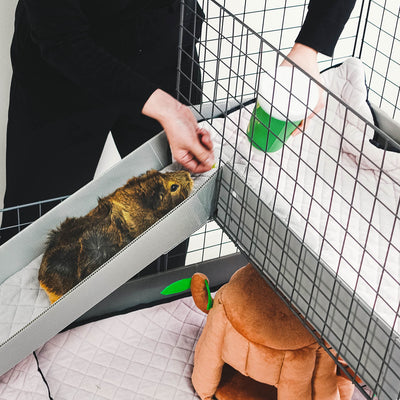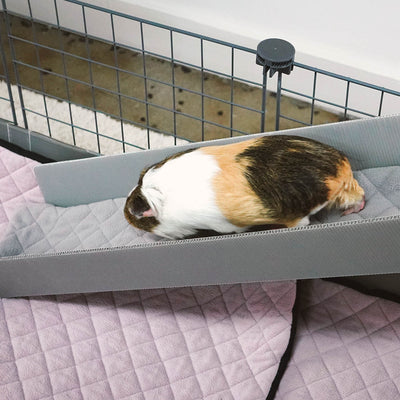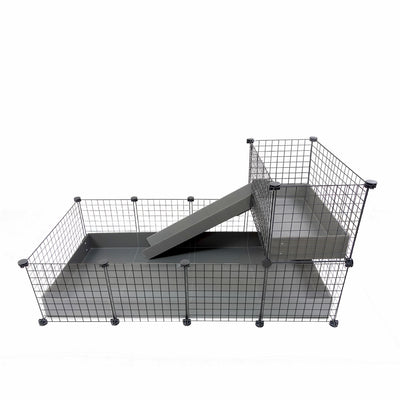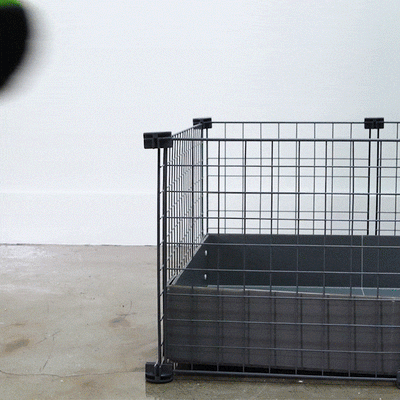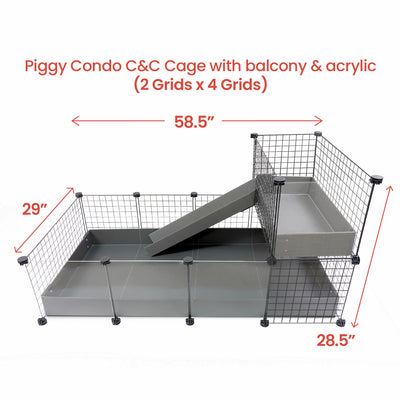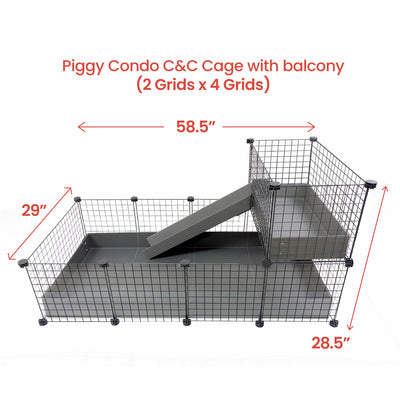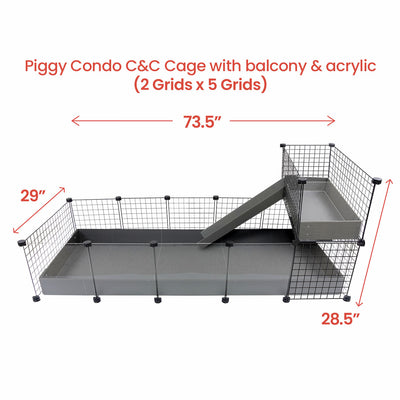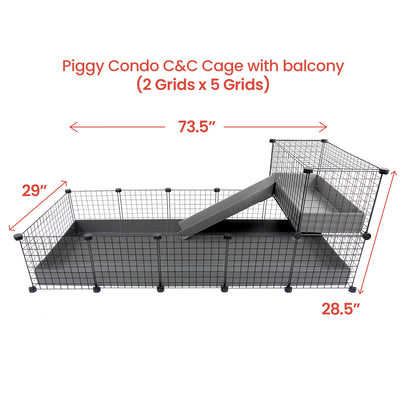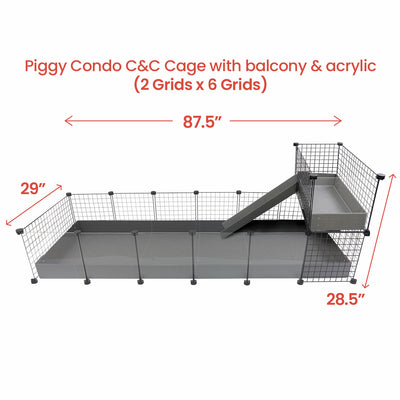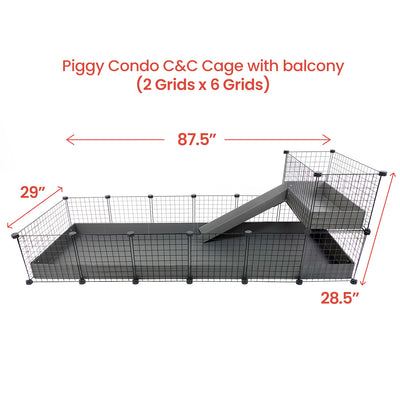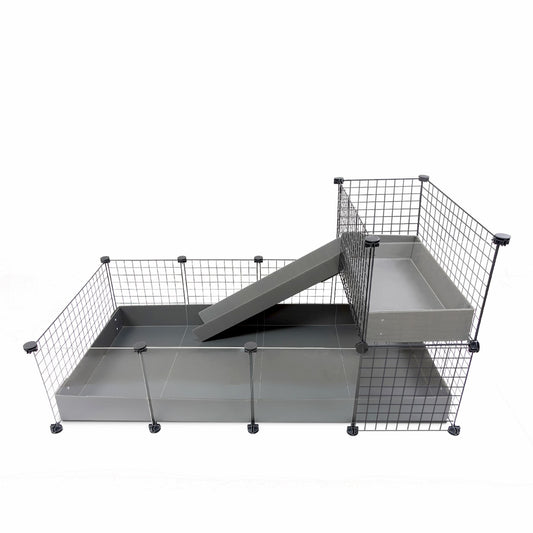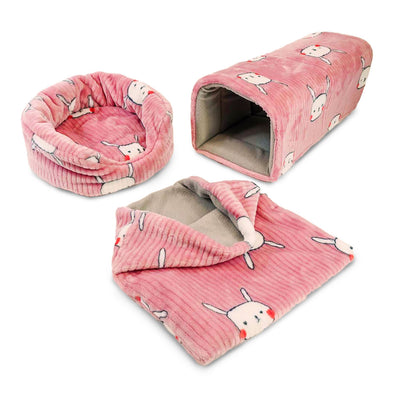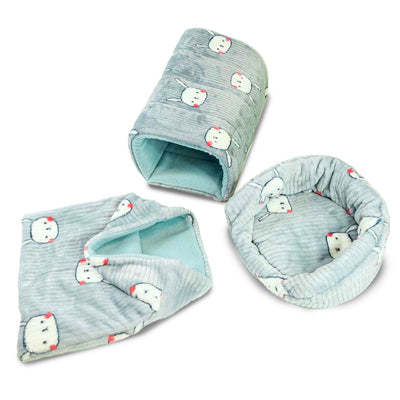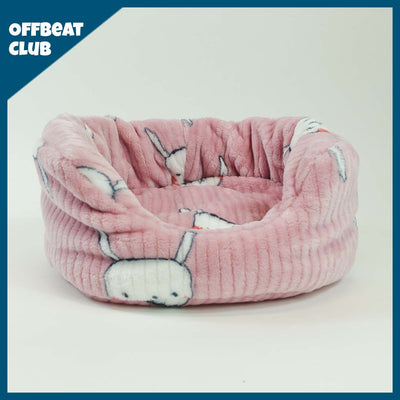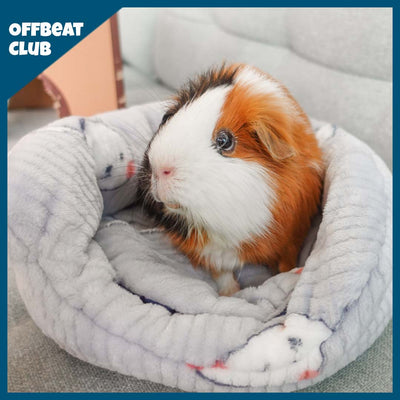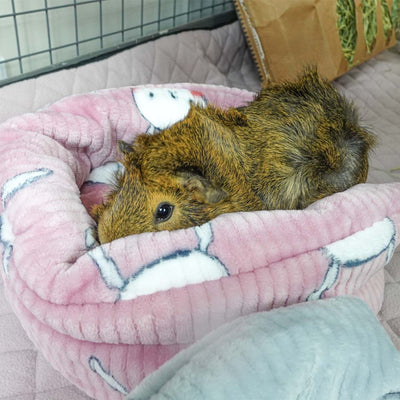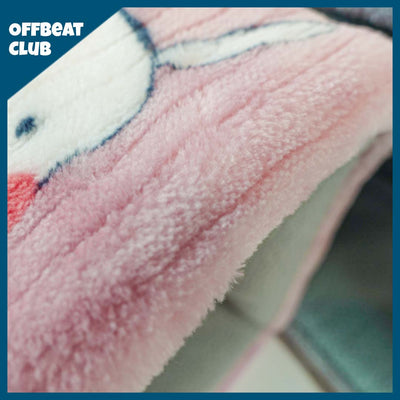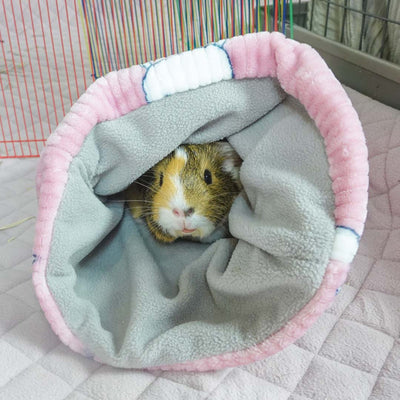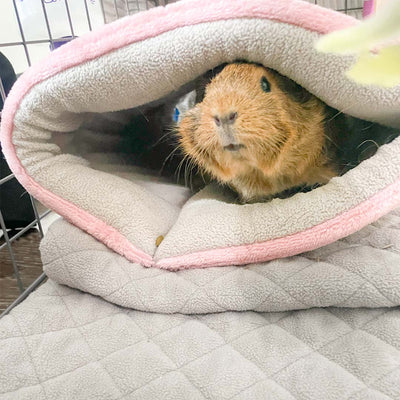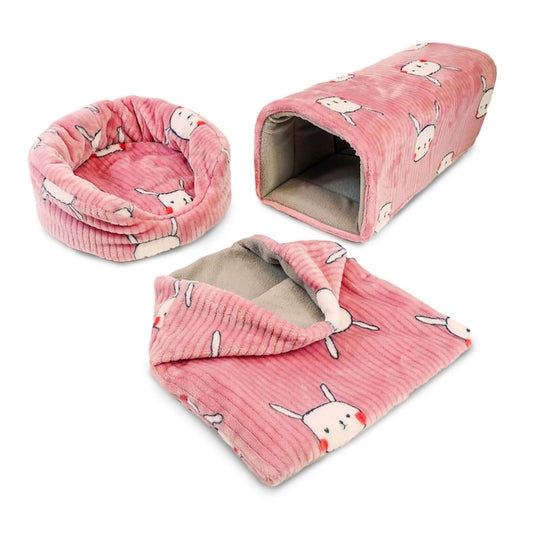The Rex guinea pig breed is one that is pretty common, and can be identified by its short and wavy coat, characterized by its frizzy hair that makes it look even cuter! Because they have shorter hair, it does make them a lower-maintenance breed! However, the coat can vary, and sometimes the length of it can be longer on some piggies!
If you’re looking to adopt a guinea pig, it’s important to do your reading on what kinds of care they need, so you know whether or not you’re ready for that kind time and commitment! Once you’ve determined that, you’re ready to be a piggy parent.
Origins
Rex guinea pigs are from South America and are believed to have been domesticated almost 5,000 years ago. They were both pets and livestock to the people there.

Physical Characteristics of Rex Guinea Pigs
Rex guinea pigs can grow to be anywhere from 8-15 inches, and weigh from 1-3 pounds. Their coats come in patterned and solid variations of brown and white! Their coats are short and wavy, but some can have longer versions of this coat as well. Their ears are visibly very large and droopy, adding even more to their cute image.
Personality
These piggies are known to be highly social and gentle, and love to be petted. However, we’ve discussed this before—all guinea pigs develop their own personalities, depending on their humans and their own living conditions and experiences! In general, guinea pigs are pack animals and usually enjoy the presence of each other. It keeps them not only from getting lonely, but encourages being active and brain stimulation.
Diet
In general, guinea pigs need a constant supply of hay and water, pellets, and around a cup of fruits and vegetables to supplement other nutrients they need, such as vitamin C, calcium, and others.
Younger guinea pigs need more calcium than older ones because they’re still growing and developing and they need their bones to be strong, but older ones need more vitamin C to prevent scurvy and any dental issues as they age. It’s important to make sure that your guinea pig has a balanced diet that doesn’t consist too much of any one thing.
Rex Guinea Pig Grooming
When it comes to grooming a Rex guinea pig, it isn’t too different from grooming any other long-haired guinea pig. Because they have that longer hair, they’re more likely to suffer from matting, knots, or tangles—this means daily brushing is necessary to prevent these things!
When brushing the piggies’ hair, you should make sure to be gentle! If there are knots or tangles, it’s going to hurt your piggy if you brush too roughly. Many long-haired guinea pigs enjoy the hair brushing process, and you can use this as an opportunity to make it a bonding experience and to get them to trust you.
While most guinea pigs don’t need to take full baths, long-haired guinea pigs are vulnerable to fly strike if their hair is dirty from urine, poop, and other debris. A dirty mane makes the perfect breeding ground for flies to lay their eggs, which leads the flies hatching and preying on your guinea pig’s infected skin.
This is something that can kill your guinea pig very quickly, so it’s important to keep your Rex guinea pig as clean as possible to prevent this from happening. Secondary infections can also occur because of this, which is what makes it extra dangerous.
Common health issues in Rex Guinea Pigs
Pedicures
Your Rex guinea pig’s nails need to be trimmed at least once a month! However, this does depend on the individual guinea pig and their nail growth turnaround. For example, younger guinea pig’s nails grow faster than older guinea pigs! Their diet also plays a role in how quickly their nails grow back.
It’s also important to note that more active guinea pigs wear down their nails faster than less active ones. With this line of thinking, it would make sense that sometimes older guinea pigs might need a trim more often if they’re not moving around as much as their younger counterparts.
It’s important to note that guinea pigs usually have a low tolerance for nail clipping, this means you’ll need to be very patient with your piggy and only do a few at a time. Make sure to take some breaks in between, especially when your guinea pig gets fussy—just try again later when they’re more relaxed! Use some treats or vegetables to encourage them to reward good behavior.
If possible, make nail clipping a two-person job. One can hold the guinea pig so their legs aren’t dangling, and the other person can do the nail clipping. If only one person is available, then gently swaddle or burrito wrap your guinea pig in a blanket and hold them how you would hold a football! Then you can begin clipping their nails.
For a one person job, we recommend using the pouch that comes in the Offbeat Piggy Play Package. This is designed specifically for holding guinea pigs in the correct way to do things like administer medication, petting, and in this case, cut their nails!
Pedicure Tools
You can utilize nail clippers that are meant for small animals! Make sure you’re careful and don’t trim your guinea pig’s nails too short. This can cause bleeding and makes the whole process very uncomfortable for your piggies. Bleeding can be stopped by applying styptic powder, or by gently pressing a paper towel to the affected area until it stops.
Dental Care
Note that guinea pig teeth are growing constantly, especially if their diet is rich in Vitamin C. However, their teeth are naturally worn down to normal lengths by the foods they eat. If they don’t eat enough hay or fruits and vegetables, their teeth won’t wear down properly, and this can lead to impaction, which can be painful for your piggies. When this happens, a visit to your vet becomes necessary for treatment.
Common health problems in Rex Guinea Pigs
Unfortunately, there are some specific health issues that guinea pigs in general are prone to contracting, and much of it has to do with their living conditions and diet, two things that you can try to provide the best of as an act of prevention!
Respiratory Infections
Pneumonia is one of the more prevalent diseases that guinea pigs tend to suffer from because of the bacteria that they pick up from their surroundings. According to research done by VCA Animal Hospitals, guinea pigs become carriers of the bacteria that cause pneumonia and stay asymptomatic—VCA calls these bacteria “opportunistic,” because they become dangerous when factors of the guinea pig’s health status allow for them to be. This includes stress or other illnesses that render the immune system weaker than normal.
Symptoms include inability to eat, discharge from the eyes and/or nose, sneezing and trouble breathing. If your guinea pig has any of these symptoms, see your vet. They can take cultures of the discharge from their eyes and nose to help them figure out what’s going on with your guinea pig!
We believe that the number one way that we can prevent infections by ensuring that their living environment stays clean and hygienic! Our GuineaDad Premium Liners are made with fibers coated in an antibacterial agent that inhibits bacterial growth, to prevent infections from happening in the first place..
Diarrhea
Guinea pigs have very delicate digestive systems, which makes them susceptible to issues involving it. When it comes to their diet, too much water or too much fiber can cause an upset in their usual digestion and cause diarrhea. With this comes loss of appetite, dehydration, weight loss, and things like low body temperature.
Scurvy
Like humans, guinea pigs can’t create their own vitamin C within their bodies, and need outside sources of it, especially as they get older. A deficiency of vitamin C can be detrimental to their health, as it can cause them to be more likely to contract diseases and infections.
Symptoms include things like rough hair, loss of appetite, diarrhea, decreased mobility, and swollen feet or joints are likely to be vitamin C deficient.
Urinary Problems
Guinea pigs are prone to the development of bladder stones, and usually form in the bladder or in the kidneys, or the tubes that drain the kidneys called ureters. When stones are lodged in the ureter or obstruct the urethra, it can become life threatening. Surgery is necessary to remove the stones a lot of the time, but regular check-ups with your vet can prevent emergencies such as these.
Bumblefoot
This is when sores form at the bottom the feet from pressure, which usually comes from the guinea pig being overweight. The sores can be painful and result in inability to be properly mobile. Treatment for this can be a little difficult, but a visit to your vet and following their treatment suggestions such as surgery, bandages, and antibiotics can alleviate the pain for your guinea pig.
One way you can relieve some of the pain that your guinea may experience in their little feet is by using the Guinea Dad Premium Liners. This is one of the best ways that you can prevent any worse infection and discomfort. These liners are made to be easy on their feet and soft to the touch for pure guinea pig comfort bliss.
Cage Size
According to the Humane Society, guinea pigs need a minimum of 7.5 square feet of space, but in general, a guinea pig needs companionship to thrive, so it's best to have at least two guinea pigs. This would mean they need a minimum of 10.5 square feet. You want to give them as much space as possible so they can roam around freely and be active, therefore staying healthy and youthful.
The Offbeat Piggy Condo C&C cage is the best and safest guinea pig cage out there, and especially when paired with the GuineaDad Premium Liners, they make the perfect combo.
Where to find your own Rex Guinea Pigs
It's most ethical to adopt your guinea pigs from a shelter if possible. It’s common for new guinea pig owners to give them up for adoption quickly after acquiring them when they’re not prepared for the amount of care their guinea pig needs—especially if they’re higher maintenance and have special care needs.
Some guinea pigs in the shelters have been mistreated and not properly cared for in the past, prior to their arrival at the shelter. Shelters do the best they can, but many have limited resources in helping hands and funds, and they take in and care for as many guinea pigs as they can. When we adopt from the shelter, guinea pig parents not only provide better customized care for each guinea pig, but also help free up rescue centers' capacity to help more animals in need.
If guinea pigs aren’t available at your local shelter, you can “rescue” them from a pet shop, since some pet shops may not be able to put as much of their time and resources towards specialized care for the guinea pigs, because they have so many other types of animals to look after as well. This can especially be the case when it comes to piggies that have special needs.
What’s left to know?
Once you’ve read and learned more about Rex guinea pigs and the kind of care that they require to live comfortably and happily, you can decide whether or not you’re up to making the commitment of caring for one!










